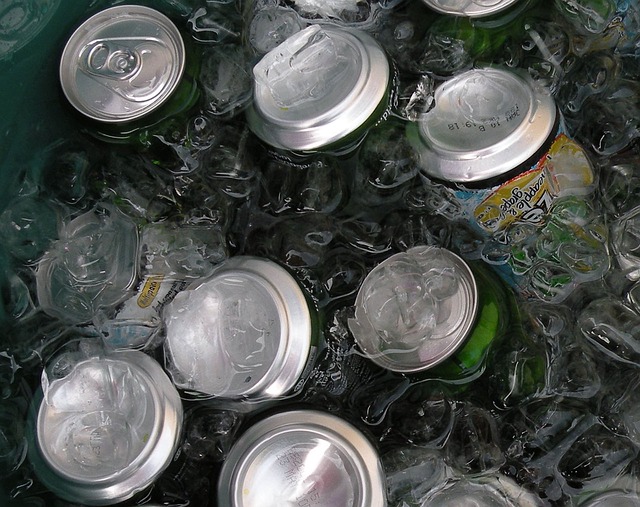
The risk of having diabetes, cardiovascular disease, a stroke, high blood pressure, obesity, degenerative diseases, atherosclerosis, gastritis, Alzheimer’s or infertility, increases dramatically with the consumption of sodas and other sugary drinks. This is the opinion of many scientists, doctors and nutrition experts who over the years have done rigorous studies in which they prove the connection of the harms of this type of drinks.
In practice, the consumer suffers many ills, in many cases even loses life and the bill is paid by society, which in the Portuguese case is largely supported through the National Health Service.
As a consequence, the Portuguese Government, like many others, created in early 2017 a special tax to stop the consumption of sodas and other sugary drinks. The new law came into force in February 2017 and the balance sheet at the end of six months already pointed to a 25% drop in consumption, and it should be noted that the industry introduced new products with lower sugar content in order to remain competitive.
The dissuasive principle is paid by the Portuguese consumer and delivered by the industry to the state, but the damages caused by the industry over decades in consumer bodies continue to be charged, despite this industry being ranked among the most valuable in the world. For example, Coca-Cola is sold in more than 200 countries and more than 1.8 billion bottles are marketed every day, which means that brand, Coca-Cola, is valued according to consultancy Brand Finance, at 31.8 billion of dollars (evaluation of 2016).
Governments are wary of facing the strong lobby of the soda industry. For example, in Colombia, the industry has a web of interests that control the media and influences society. Already in the US, Coca-Cola and Pepsi sponsored at least 96 health organizations between 2011 and 2015, including some dedicated to combating obesity, while at the same time acted against at least 29 bills that aimed to reduce the consumption of sodas. They are marketing actions that buy the silence of important voices in society, while the economic power of this industry throws panic at governments by threatening to close factories and create a wave of unemployment.
Even in 2017, the Portuguese government proposed to create a similar tax for high salt products, but the industry lobby was stronger and politicians kept the legislation in the drawer for fear of reprisal. It is important to point out that in the case of salt, the damage is more than proven by scientists, doctors, and specialists through various studies (read more about salt in articles on this site).
Focusing now on the harmful effects of sodas, we leave here some of these examples in detail so that each one, conscientiously decides, whether to continue to consume sodas:
-

Robert Owen-Wahl’s photo in Pixabay. A can of Coca-Cola even had the equivalent of 33 sachets of sugar. Diabetes and Obesity
Sodas have high amounts of sugar that consumers are often unaware of. For example, a normal Coca-Cola can (33 cl) can have 35 grams of sugar, the equivalent of 7 sugar sachets. With this ingestion increases the level of blood glucose and insulin resistance. The combination of these two factors triggers the risk of developing type 2 diabetes.
In addition, it is a true caloric bomb that promotes obesity and in the case of “light“, “Zero“ or “No Sugar“ sodas have fewer calories because they are artificially sweetened but continue to have the same harmful effects as a traditional soda.
-
Cardiovascular diseases
The combination of obesity and increased blood glucose and fat, raises the risk of developing cardiovascular diseases of various types, with coronary artery disease and artery disease of the brain which is the most worrying. Almost all of them are caused by arteriosclerosis (deposits of fat and calcium plaques inside the arteries that hinder blood circulation) that can lead to diseases such as angina pectoris, a myocardial infarction, stroke, among others. In Portugal, these are the diseases that kill the most, according to the Ministry of Health.
-

JodyHongFilms’s photo in Unsplash. Most plastic and aluminum sodas containers, use bisphenol A, a chemical that can cause cancer. High blood pressure
Sodas can lead to a gradual increase in blood pressure due to their high amounts of sodium, caffeine, and fructose (sugar species). Constant and excessive consumption are thus risk factors for heart attack and the development of other heart diseases.
-
Degenerative diseases
Chemical additives and other substances used in sodas are toxic and potentially carcinogenic to the cells of our body. There are several studies that point out sodas as responsible for intestinal, prostate and other degenerative diseases.
In addition to the potentially carcinogenic chemicals in sodas, such as aspartame, these beverages contain a very acidic pH, similar to that of vinegar, which is disguised by the high amount of sugar. The only organ in the human body capable of withstanding this type of acidity is the stomach, so all other organs, such as the mouth, esophagus, or intestine, which come in contact with this type of acidity, can, throughout the time, develop tumors due to changes in their cells, said the experts in several studies.
-

Whereslugo’s photo in Unsplash. To compensate for the high acidity level of sodas, it takes more than 30 glasses of water to re-balance the pH level of our body. Osteoporosis and Caries
Phosphoric acid, a chemical compound that increases the acidity of the blood, is present in many sodas and causes our body to use bone calcium to rebalance levels of acidity, several doctors and experts warn. Lair Ribeiro, a Brazilian cardiologist, and nutritionist point out that the human’s blood pH is from 7.35 to 7.45, but because the soda usually has a pH of 2.5, the body has to work hard to counteract this imbalance. According to Lair Ribeiro, 32 cups of water are required, with a “good” pH [preferably higher than 7.35], to cancel out the acidity caused by the soda. “It’s pure poison,” says Lair Ribeiro.
One of the consequences of combating acidity is the reduction of bone density, which potentiates osteoporosis, rickets, nervous and muscular spasms, as well as increasing the risk of developing cavities or gum disease, such as gingivitis. Phosphoric acid also makes it difficult for the stomach to produce gastric acid, slowing the digestion process and absorbing nutrients.
-
Infertility
Bisphenol A (BPA) is used in the production of multiple plastics, such as traditional soda bottles or in the inner lining of ordinary aluminum cans containing sodas. Experts consider BPA a very unstable molecule that can easily pass from plastics or cans to food, only with changes in temperature or damage to the packaging. Costa Rica, Canada, and some US states have long since banned it. Already in the European Union, it was only in 2011 that it was decided to ban production and marketing on feeding bottles (read more about BPA in articles on this site), but most sodas continue to be exposed to bisphenol A. A chemist associated by scientists, physicians, and other specialists, in the development of hormonal problems in women and men, leading to infertility, premature puberty, development of degenerative diseases and obesity.
-
Gastritis
The acid present in sodas used to gasify attacks the gastric cells, reinforcing the risk of heartburn, often provoking reflux, gastritis, which could progress to ulcer if nothing is done. The usual consumption also reinforces the acidity level of gastric juice created by the stomach, experts say.
-

Pixabay’s photo. Drinking several times a day soda accelerates the aging of the Human Being. Kidney stone
The high level of acids in sodas (phosphoric or citric, among others) causes the body to resort to calcium, which is essential to maintain the structure of bones, to facilitate digestion and balance the pH level.
That way, the kidneys need to eliminate the calcium used in that process, which increases the risk of kidney stones from accumulating inside them, experts say. The stone in the kidney is responsible for one of the greatest pains that the Human Being can feel.
-
Insomnia
The high sugar content of sodas, which often accumulate with caffeine, interferes with the circadian cycle and causes insomnia. In addition, both coffee and sugar are addictive, which encourages the consumption of sodas.
-
Premature aging
Drinking sodas daily increase the speed at which the cells of the human body age. The revelation is made by scientists at the University of California, San Francisco in a study published in the American Journal of Public Health in 2014.
They found that daily consumption of two cans of soda per day caused changes in DNA, which made cells 4 to 6 years older than they actually were. Analysis of thousands of DNA samples revealed that the telomeres of these people were shorter than those who did not. Telomeres shorter than average are a sign of aging and age-related potential diseases, such as Alzheimer’s, diabetes, heart disease, and others (read more about telomeres in articles posted on this site).
This text is an awareness. According to the season of the year and the moment in which you are, it is up to each one to feel if they should consume this food. The dosage and frequency depend on the nature and physical condition of each Human Being.




